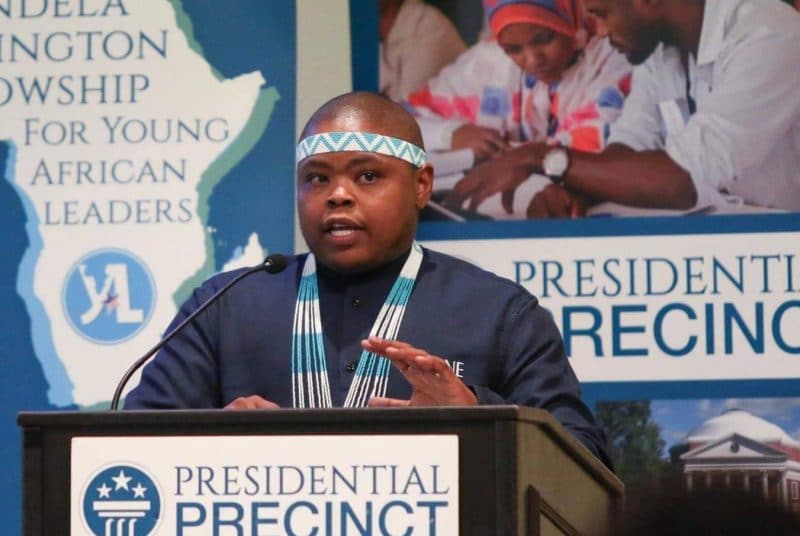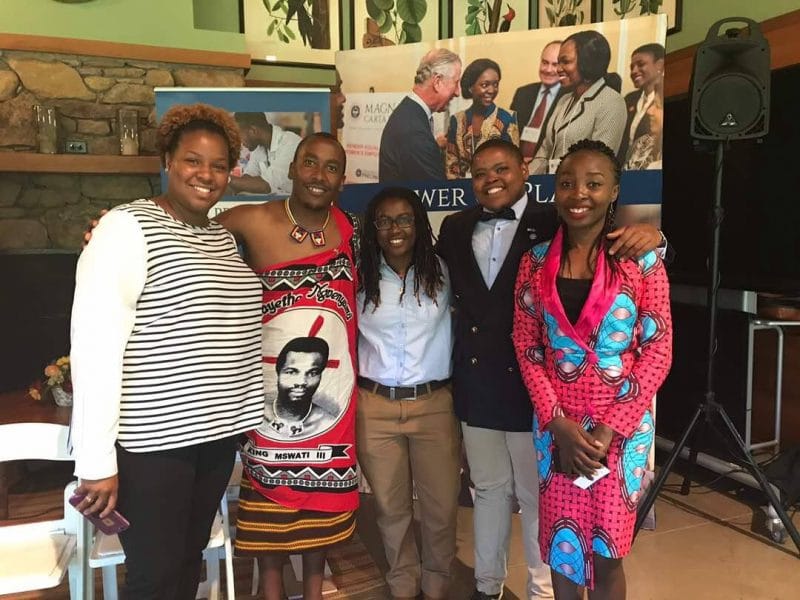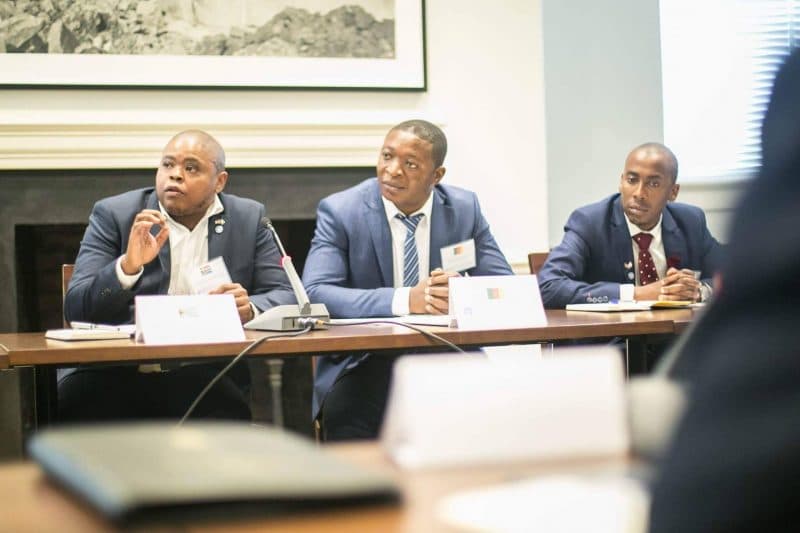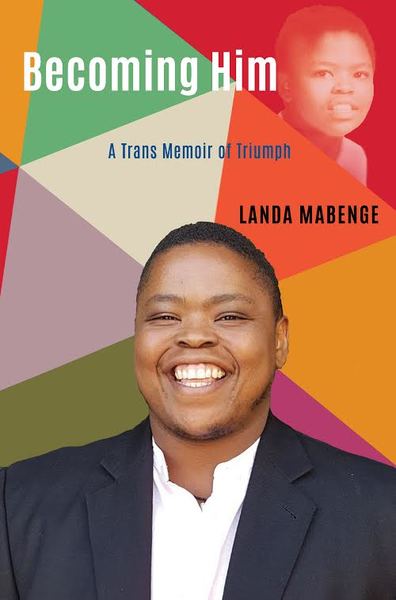
The Mandela Washington Fellowship for Young African Leaders is the flagship exchange program of former President Obama’s Young African Leaders Initiative (YALI). The competitive fellowship program selects up to 1,000 young change-makers from Sub-Saharan Africa who are doing outstanding leadership work in their local communities. The program empowers fellows through leadership training, academic coursework, and networking opportunities at a U.S. higher education institution. Fellows also receive professional development support once they return home.
We spoke to Landa Mabenge, a 2017 Mandela Washington Fellow from South Africa, to learn more about the program and get some application tips.
1. What inspired you to apply for the Mandela Washington Fellowship?
Begun in 2014, the Mandela Washington Fellowship for Young African Leaders is the flagship program of the Young African Leaders Initiative (YALI) that empowers young people through academic coursework, leadership training, and networking. This program is the brainchild of former U.S. President Barak Obama, and each year sees up to 1,000 young leaders from across the African continent come together for a period of 6 weeks to undergo rigorous training to become future leaders.
When I came to know about this fellowship, I was seeking an alignment within myself in terms of my purpose in life and my call to serve humanity. I knew that I had a passion for teaching and creating awareness within the transgender space and that I needed a platform to tailor my abilities and quality of service. It had occurred to me that I could use my personal journey– I am the first known transgender man in South Africa to motivate private medical providers to pay for gender-affirming care and surgeries –to teach and create awareness about what it means to be a transgender person in South Africa. When I read the fellowship conditions and application criteria, I realised that partaking in the program would help me in my journey.
I applied with the intention to get to the U.S. to learn as much as I could from my peers and educators. This exactly what happened. The fellowship served as a vital part of my journey and equipped me with the necessary tools to embark on in my quest for the advancement of diversity and inclusion within the transgender awareness and education space.

2. How has the fellowship experience influenced your current work?
The fellowship residency is determined by a selection panel, and fellows are placed in various institutions across the U.S. I was placed at the Presidential Precinct in Virginia in a cohort of 25 fellows from various countries across Africa. The Presidential Precinct is a non-government organization that is a consortium of the University of Virginia College of William & Mary and the foundation of America’s founding fathers. The Precinct’s mission is to empower the next generation of influential leaders through education, collaboration, and global networking. By combining the academic resources of the universities with the rich history of the presidential homes of these founding fathers, the Precinct seeks to encourage leaders to exchange ideas, seek expert advice, learn from world history and solve the most pressing challenges in their communities.
The fellowship experience allowed me to learn at both the University of Virginia as well as The College of William and Mary. My studies at the two institutions gave me theoretical and practical experience as well as tools that would enhance the work that I do in my country. I was able to learn from scholars working on research about James Madison, the father of the American Constitution and architect of the Bill of Rights. This allowed me to learn deeper about the genesis of a bill of rights and acquire skills that I could use in my work as a human rights champion to foster an environment of adhering to the rule of law through education and awareness. Upon my return to South Africa, I was able to better streamline the work I do and establish deeper connections with civil society organisations doing similar work. South Africa has one of the most progressive constitutions in the world. Our constitution contains specific provisions that safeguard the rights of all people, regardless of their gender identity or sexual orientation. However, the reality for most South Africans is that there is a lack of access, a lack of information and a lack of justice. These specific constitutional protections often do not filter down to the grassroots level or benefit the layperson.
In addition, over the course of my fellowship experience, I realised the value that tertiary institutions of education could add as hubs of knowledge and spaces of access where young people who are transgender would be able to be linked to care. The institutions could also serve as resources for the creation of awareness which, according to my vision, would eventually filter to the grassroots level and have a positive impact within communities that require education and awareness. Because of this realization, when I returned home I began working with the Stellenbosch University Equality and Transformation units, where I engaged with both staff and faculty. I extended my work to other institutions of higher learning across different provinces in South Africa and even extended my service offerings to impoverished communities that are in dire need of safe spaces where transgender young people can live their truth without fear of victimisation or violence. All this work I carried out through my independent consultancy, Landa Mabenge Consulting, which is a social enterprise committed to teaching and creating awareness about what it means to be transgender.
Finally, my time as a fellow also made me appreciate the need for visibility and sharing of positive experiences in the transgender and human rights space. As a result, I was able to write and publish my debut book, a memoir titled: Becoming Him-a trans memoir of triumph. This book has been recommended in various institutions of higher learning and is currently one of the prescribed texts for honours in educational psychology students at the University of Johannesburg, South Africa.

3. What tips would you give others applying to the Mandela Washington Fellowship?
One has to begin their Mandela Washington Fellowship application with an intention in terms of service and impact. This fellowship requires honesty, a respect for humanity and an intention to leave the world better off. Anyone who applies for this fellowship must remember the legacy of the presidents it is named after: Nelson Mandela and George Washington. It is a fellowship like no other in that it pulls dynamic young leaders from their native African countries to the U.S. for a period of six weeks. During this time, fellows are stretched beyond their comfort zones while undergoing a rigorous beneficial academic and cultural programme. This fellowship prepares one for a world like no other, and so it is important that whoever wants to apply should be a leader that will have an impact on their society, Africa and the world at large.
The fellowship is open to young leaders between the ages of 25 and 35 who can apply for one of 3 tracks: Civic Leadership, Public Management, and Business and Entrepreneurship. The process is highly competitive and thousands of applications are received each year. During my application year (2016), more than 64,000 applications were received and only 4,000 interviews were conducted, with a final selection of 1,000 fellows.

Interested in applying? Bookmark the Mandela Washington Fellowship for Young African Leaders to your ProFellow account.
© Victoria Johnson 2019, all rights reserved.